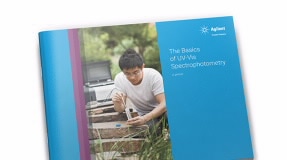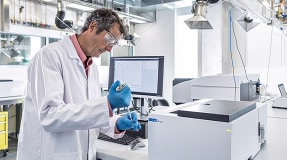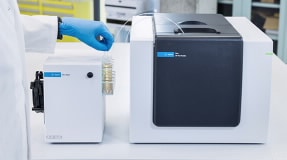
UV-Vis & UV-Vis-NIR Spectroscopy
Advanced Molecular Analysis with Cary Spectrophotometers for UV-Vis & UV-Vis-NIR
Cary UV-Vis (ultraviolet-visible) spectrophotometers are ideal for both routine and research measurements, with flexibility, longevity by design, and software to ensure your data is managed, protected, and meets data integrity standards when required. Cary UV-Vis-NIR (ultraviolet-visible-near-infrared) spectrophotometers offer photometric excellence in a range of applications for both liquid and solid samples. Our accurate, intuitive UV-Vis and UV-Vis-NIR instruments provide exceptional resolution and unmatched linearity for every measurement.
A comprehensive portfolio of accessories and supplies adds wide-ranging measurement flexibility. Quickly and easily set up your instrument for routine ultraviolet-visible spectroscopy analysis of liquid or solid samples, precise temperature measurements, sophisticated transmission and reflectance measurements of solid samples, and many other UV-Vis and UV-Vis-NIR spectroscopy applications.







